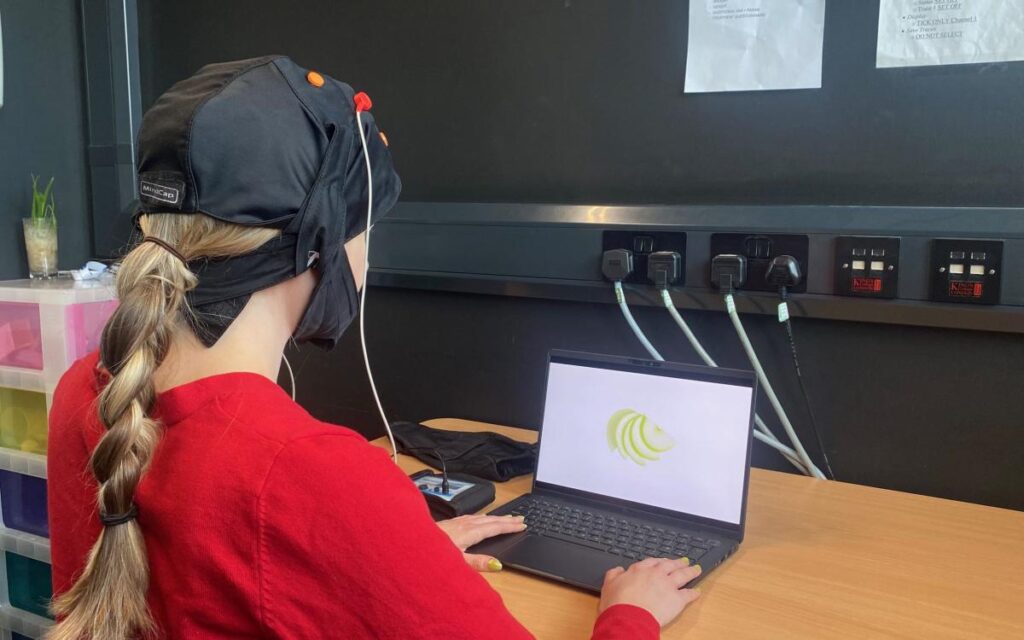Emb. schedule for 6am
A brain-zapping treatment for binge-eaters that can be carried out at home has helped people lose more than half a stone in just six weeks.
The technique, called transcranial direct current stimulation, fires a gentle electrical pulse via electrodes on the scalp causing a slight excitation of brain cells.
King’s College London carried out trials on 82 people who were overweight, obese and suffering from a binge-eating disorder.
Participants carried out 20-minute sessions using a headset device, 10 times over a six weeks period, alongside a training programme that reduces attention to food.
Those using the stimulation cut their binge eating from around 20 times a month to just six times a month, and lost around 0.5 to 0.6 stone – a reduction in mean BMI of 1.28 points.
In comparison, those who just received placebo stimulation and the training lost only 0.2 to 0.3 stone, a reduction in mean BMI of 0.52 points.
Those who had the training alone showed only a negligible change in their weight while the control group who had no treatment at all lost no weight.
Dr Michaela Flynn, research associate at the Institute of Psychiatry, Psychology & Neuroscience at King’s said: “Current treatments for binge-eating disorder are only effective for some people and many need further or different support to get well.
“Our study is the first to look at a new option for home-based treatment that offers a different approach to treating binge eating disorder. The treatment targets the brain driven patterns of behaviour that might be contributing to the loss of control around food, enabling people to shift entrenched thinking and behaviour around food.
“Participants commented that their mood felt lighter, which may be a key part of why they reported changes in eating behaviour and weight loss that lasted for some time after treatment ended. Our findings are encouraging, and we want to explore this on a larger scale with more participants.”
People with binge-eating disorder have recurring episodes of losing control over their food intake, consuming lots of food in a short period of time until they are uncomfortably full.
The condition is typically accompanied by anxiety and low mood and linked to obesity and ill health.
Research has shown that dampened self-regulatory processes in the brain drive the cycle of binge eating and it was hoped that stimulating the brain could help people regain control.
The group who received the stimulation reported substantial improvement in their mood. The findings were published in BJPsychOpen.
Broaden your horizons with award-winning British journalism. Try The Telegraph free for 3 months with unlimited access to our award-winning website, exclusive app, money-saving offers and more.

